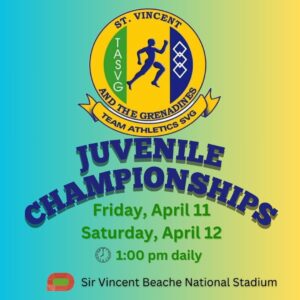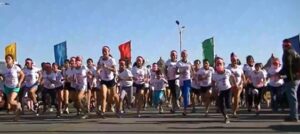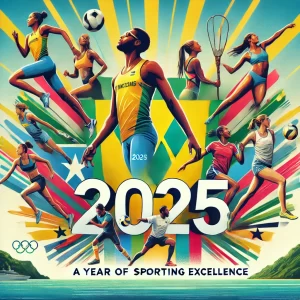More global sport challenges
“Elevate the Champions of Europe”
That’s the theme of the innovation that Europe has brought to the table of international sport at a time when many of the international federations and sport organisations muddled over their own challenges.
Oblivious to the need for meaningful, innovative change, much of the rest of the world of sport were left with their mouths hanging open in dismay as Europe once more proved the society intent on being the trailblazer in international sport.
After much planning, several European sport organisations decided on the creation of an economically viable and perhaps, sustainable, sporting institution, the European Championships.
The first edition of the European Championships took place in 2018. The second edition is set for 11 – 21 August 2022.
The European Championships
According to the organisation’s website, ‘The whole is greater than the sum of its parts’. This translates into, “The European Championships brings together the existing championships of the continent’s leading sports into one multi-sport event to create a must-watch, must-attend experience that elevates the Champions of Europe”
The inaugural European Championships took place in two European Cities – Glasgow, Scotland, and Berlin, Germany. This meant that from the very beginning the planners took to the innovative idea of using cities from two nations to conduct the event, something that organisations like the International Olympic Committee appear fearful of trying.
Interestingly, even at the continental level where, because of lack of all the requisite facilities in one city or even one country, led to the use of different venues outside the official host nation, the practice has been spurned.
The likes of the custodians of the Pan American and Central American and Caribbean Games have long since ceased the practice.
The Europeans, clearly benefitting from the experiences of another international sports federations and their Aggressive approach to sport organisation, have readily grasped at opportunities that they were prepared to make work for them.
The inaugural European Championships involved nine sports.
The second edition of the Championships, scheduled for Munich, Germany, host of the Summer Olympics of 1972, features an impressive nine sports – Athletics, Beach Volleyball, Canoe Sprint, Cycling, Gymnastics, Rowing, Sport Climbing, Table Tennis and Triathlon.
The creators of the project insist that “The European Championships builds the prestige and profile of individual continental championships by uniting them in one multi-sport event every four years”.
They further state that “Uniting these sports’ European championships helps clean a crowded sporting calendar”.
Convinced in the viability of the project the creators claim that “The event has an innovative and cost-effective staging model – good value in comparison to other multi-sport events”.
They boast a “central time-table, uniform brand and an overall medal table and trophy” as part of their innovation.
Additionally, the website states, “The European Championships unites 9 European Championships “under one roof” in Munich. The concept relies on the Federations and the other stakeholders working together in a spirit of collaboration to find common solutions that unite us in our mutual goals to elevate the participating sports and their athletes. The European Championships can break down barriers to bring nations and individuals together in a spirit of respect and mutual understanding.”
While stating, “Ensuring that the multi-sport European Championships is economically and environmentally sustainable for host cities is a key element in the philosophy underpinning the concept”, the founders are also of an understanding that there is much to be gained from the quadrennial event.
Clearly the Europeans, already beneficiaries of remarkable financial gains from television rights at the individual sport level, understood and carefully planned the multi-championship event to boost revenue-generation for the collective that can then be distributed along the lines of the Olympic Games model but almost certainly guaranteeing each a larger percentage of the cake than is normally the case in the latter institution.
Not surprisingly the website boasts, “The European Championships unites 9 European Championships “under one roof” in Munich. The concept relies on the Federations and the other stakeholders working together in a spirit of collaboration to find common solutions that unite us in our mutual goals to elevate the participating sports and their athletes. The European Championships can break down barriers to bring nations and individuals together in a spirit of respect and mutual understanding”.
Oppressive models applied to sport
Some of us with experience in sport management have started an appeal for a new international sport order. This has emerged in large measure due to the fact that sport is currently a reflection of global society, decidedly unequal.
Indeed, an examination of the world of sport reveals the same level of inequity that we see in global economics. The rich nations are still the most powerful in every sense. The developed world does not have patience with the developing world. They do not see us as developing, in the first place. They helps us to become under-developed and that is where they continue to see us and where they seem anxious to leave us.
The world of sport can best be described by two theoretical perspectives.
On the one hand there is the centre-periphery model articulated in economics by Johan Galtung, Andre Gunder Frank, Jon Naustdalslid and Stein Rokkan. In sport the developed societies operate much like the colonial metropolitan centres of old, conquering nations then holding them hostage, first under direct colonial rule and later, by economic control of the main levers of their respective economies.
The vast majority of international sports federations are controlled by Europe and this even where they are not directly in the president’s chair.
The second model that can readily be applied is the experience of the American from conquest through to slavery and colonialism and Independence. This is the Plantation Society model that has a number of Caribbean academic luminaries attached – George Beckford, Raymond T Smith, and Lloyd Best with assistance from Kari Levitt.
The plantation is the seat of economic power and all the other institutions are beholden to it in every aspect of life. Smith and Beckford borrowed the Ervin Goffman concept of a ‘total institution’ to better explain the complete dominance of the society by the owners of the plantation.
In today’s sport, it is much the same International sport federations, controlled everywhere by the metropolitan nations operate like the plantations of old, dictating all aspects of their respective sports, without full engagement of those who join them and who are from small, poor, open and highly vulnerable societies.
Occasionally, token representation is afforded this or that individual from the former colonies but without any meaningful decision-making power. Even when the pitfalls anticipated by the token representatives come to pass, there is an unwillingness to acknowledge their foresight.
Rights, whilst enshrined in the constitutions of the international sports federations, are, in large measure, determined by circumstances in the metropolitan countries and imposed on all members without due diligence of the peculiarities/nuances of the majority of the members.
It is commonplace to find international federations proclaiming their global membership as a phenomenon to be admired whilst failing to acknowledge their distinctive biases in favour of the rich and powerful nations that effectively wield control.
In the Americas, for example, two multi-sport organisations insist upon weighted voting for elections and the selection of Games Cities. Those Olympic Committees that have hosted the Games have two votes while others have one. The custodians, over decades, continue to favour this discriminatory practice, seeing nothing wrong with it. They vehemently reject the efforts by the disenfranchised to engender equity and fairness while spouting their commitment to unity, fair play and good governance.
In the recent past, Europe has had to contend with the influx of billionaire investors in sport, forcing subtle and other not so subtle changes in their sport administrative infrastructure. It is once more the wealthy investors in sport who are flexing their muscles across the seas, extending their global reach, influence and power.
In essence the plantation owners are changing properties. They engage in collaboration, hoping to share the wealth amongst themselves whilst spawning ever-increasing profits.
Global response
Countries on the periphery, plantation societies across the globe have been so integrated into the world economic order find themselves entrapped in the existing global sport order that originated amongst the same societies that once sought to conquer new vistas in pursuit of their own economic development. Nothing has changed beyond the application of innovative technologies.
As was the case in the past, ‘those who come bearing gifts’ in sport have the same objective – systemic exploitation of our talent, even as they deny us a place at the decision-making table. The plethora of ‘good causes’ they espouse often mask the exploitation that is at the very core of their existence and mode of operation.
This is the reason that we can witness the billion-dollar industry that is the Olympic Games yet deny the athletes, the ones on show for the world’s entertainment, an appropriate compensation for their efforts as they go faster, reach higher and grow stronger.
Challenges to the existing international sport order must take place, led by those who have long since been calculatedly disenfranchised from the age of conquest through to today. This is just another aspect of the struggle of disenfranchised and exploited peoples that must take place for genuine liberation to take place.





